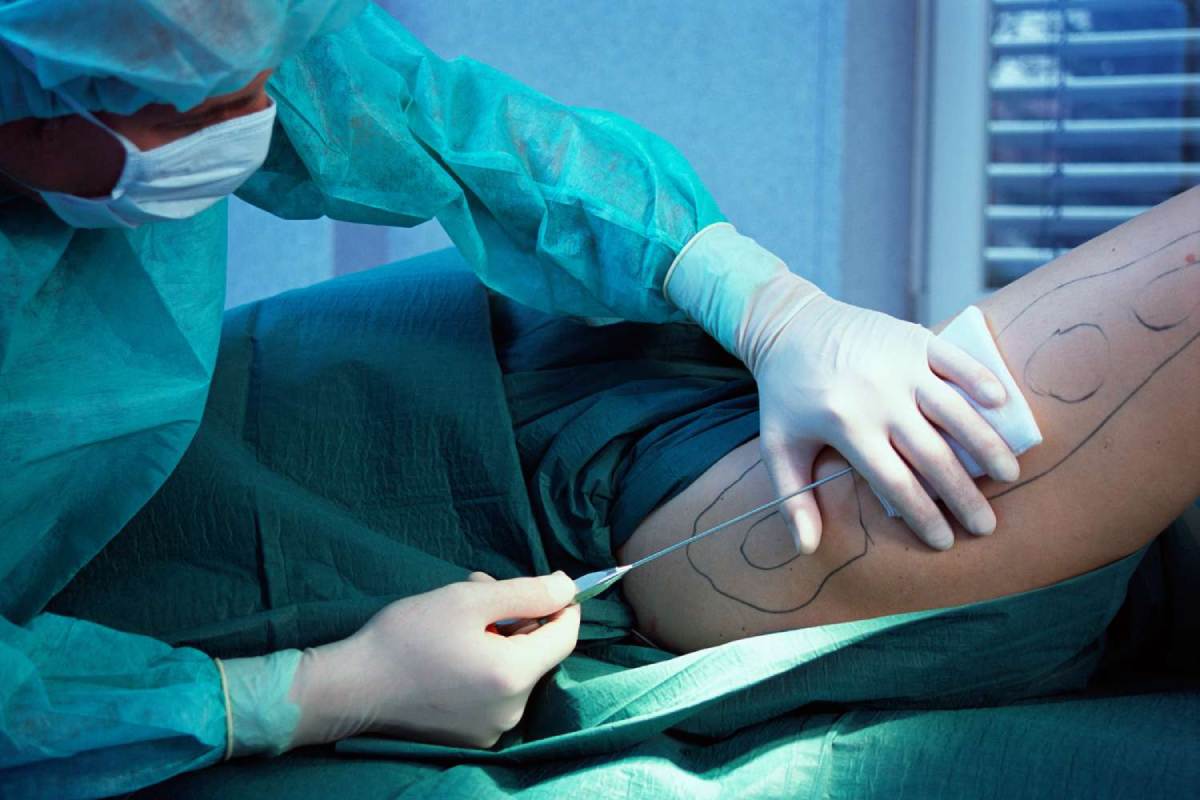Liposuction or lipoplasty is a fat removal procedure used to remove fat cells from specific sections of the body. If you’ve tried diet and exercise without success, liposuction can help you eliminate unwanted fat. The procedure targets adipocytes (fat cells) that store fat in your body. Cosmetic surgeons use it to remove excess fat from the abdomen, stomach, waist, flanks (love handles), back, chest, and buttocks. Liposuction can also remove fat from the face, cheeks, chin, neck, upper arms, thighs, inner knee, calves, and ankles.
Here’s an overview of liposuction, including what the procedure involves and achieves, candidacy requirements, recovery, and more:
Table of Contents
What Does Liposuction Surgery Accomplish?
Liposuction is a popular surgery designed to remove excess fat from the body. The procedure can help you get rid of unwanted fat deposits. Lipo permanently removes the fat cells that store the fat. It shouldn’t be conflated with weight loss programs since liposuction doesn’t address weight issues like obesity. The surgery focuses on removing excess fat pockets. You can get a customizable liposuction surgery to smooth out fatty bulges in different sections of the body. The surgery results in permanent body modification and addresses stubborn fat that doesn’t shrink naturally with dieting and exercising. Although the fat removal is permanent, your body can regrow fat after liposuction. The procedure can give you a more aesthetic appearance by removing unsightly fat deposits from the abdomen, thighs, arms, back, face, and more.
Who’s the Right Candidate for Liposuction?
Candidates for liposuction surgery must meet specific requirements if the procedure is to be safe and effective. The ideal candidate must be an adult with an average or above average weight, and good overall health. Liposuction candidates should also have a firm, elastic skin rich in elastin and good muscle tone. Liposuction is a feasible solution if you meet these requirements and have fat pockets that don’t shrink despite diet and exercise.
The cosmetic surgeon will evaluate you to determine if you’re the ideal candidate for lipo.
Below are more candidacy requirements to consider:
- You must be a nonsmoker
- You must have a BMI below 25
- You must not have any severe or life-threatening health condition that slows down healing
- You must not have good skin quality
- You must have realistic expectations
How Is Liposuction Surgery Performed?
There are many types of liposuction surgery. Examples include tumescent liposuction, ultrasound-assisted liposuction (UAL), and vibration-amplification of sound energy at resonance (VASER). Other lipo surgeries include suction-assisted liposuction, power-assisted liposuction (PAL), and laser-assisted liposuction. The procedures are performed under local or general anesthesia by a board-certified plastic surgeon. The procedure will depend on the type of liposuction used.
Here’s what the procedure involves once the anesthesia kicks in:
- The surgeon makes an incision in the target location
- A suction device is inserted in the incision between the skin and muscles
- The suction device is attached to a cannula (a small, stainless-steel instrument)
- Your surgeon moves the cannula inside the body to break fat cells
- The suction pipe draws the fat cells from the body. Sometimes, the surgeon uses a large syringe
After the surgery, your doctor will close the incision using sutures, which can be dissolvable or non-dissolvable
FAQs About Liposuction
What’s the recovery time for liposuction?
Liposuction can be an outpatient procedure at the surgeon’s office or surgery center. If it involves removing large amounts of fat, you may stay overnight at the hospital. The recovery time depends on how much fat is removed but takes up to six months on average. You’ll also need to rest and relax during the first six weeks.
How long until I return to regular exercise?
If you have an outpatient liposuction, you can resume regular activity after a few days, but it depends on the location and nature of the surgery. Most people resume work after two to four weeks, but sometimes, it takes up to six weeks to manage regular physical activities. Your surgeon will provide a more precise schedule.
Will I have a scar after liposuction surgery?
Yes. You’ll have scars after a liposuction, but they fade with time. Your doctor will advise on how to minimize unsightly scarring, infections, and complications that can worsen the scarring. The scars are usually small and hard to notice after the wound heals, but can still identify the incision points.
How do I prepare for liposuction surgery?
Each client is different, so your plastic surgeon will advise you on how to prepare for the procedure. General requirements include quitting smoking for at least six weeks before the surgery. You should also avoid blood-thinning medications for at least two weeks and eat a healthy diet. Avoid meals after midnight on the day of your surgery.
What do I expect after liposuction surgery?
Expect your surgeon to provide advice on how to care for the surgical site, prescribe pain medications, and schedule follow-up appointments. The surgeon will also advise on complications to watch out for. Expect bruising, swelling, soreness, and pain after the anesthesia wears off. These symptoms fade as the wound heals.


